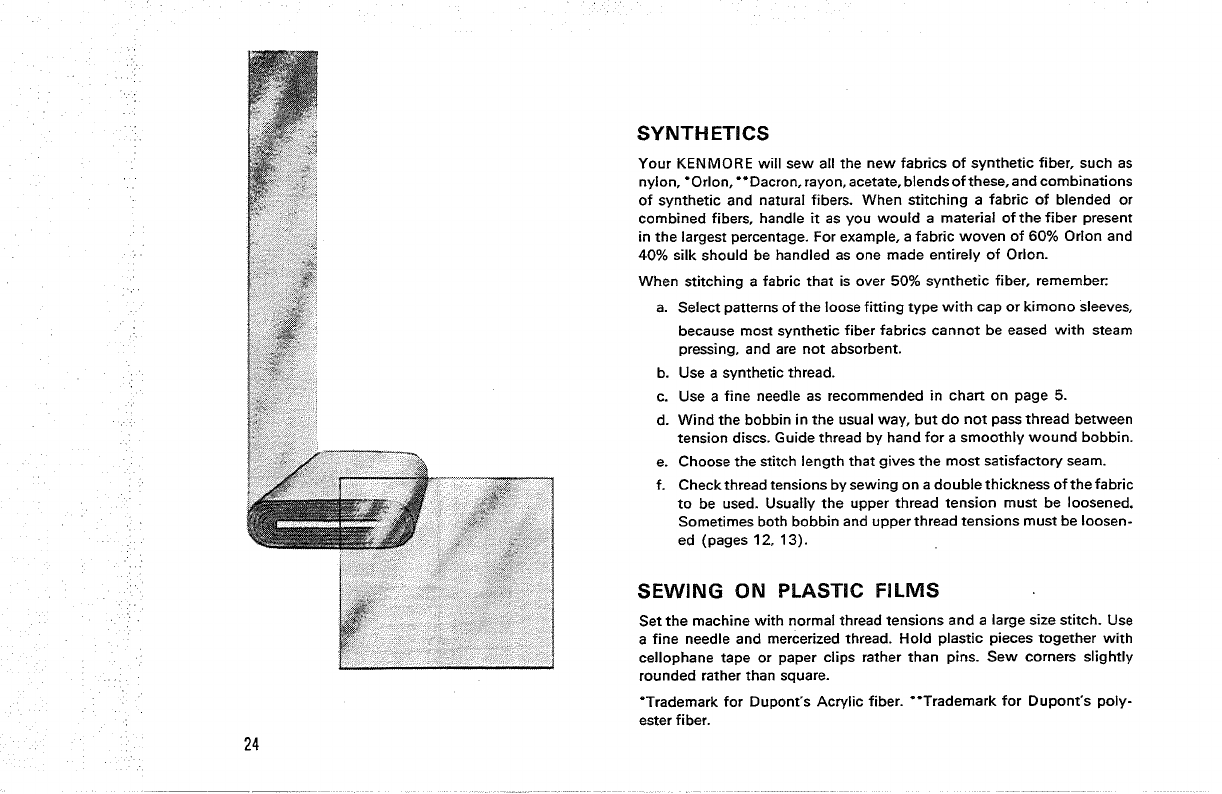
24
SYNTHETICS
Your KENMORE will sew all the new fabrics of synthetic fiber, such as
nylon, °Orlon, ** Dacron, rayon, acetate, blends of these, and combinations
of synthetic and natural fibers. When stitching a fabric of blended or
combined fibers, handle it as you would a material ofthe fiber present
in the largest percentage. For example, a fabric woven of 60% Orlon and
40% silk should be handled as one made entirely of Orlon.
When stitching a fabric that is over 50% synthetic fiber, remember:
a. Select patterns of the loose fitting type with cap or kimono Sleeves,
because most synthetic fiber fabrics cannot be eased with steam
pressing, and are not absorbent.
b. Use a synthetic thread.
c. Use a fine needle as recommended in chart on page 5.
d. Wind the bobbin in the usual way, but do not pass thread between
tension discs. Guide thread by hand for a smoothly wound bobbin.
e. Choose the stitch length that gives the most satisfactory seam.
f. Check thread tensions by sewing on a double thickness of the fabric
to be used. Usually the upper thread tension must be loosened.
Sometimes both bobbin and upper thread tensions must be loosen-
ed (pages 12, 13).
SEWING ON PLASTIC FILMS
Set the machine with normal thread tensions and a large size stitch. Use
a fine needle and mercerized thread. Hold plastic pieces together with
cellophane tape or paper clips rather than pins. Sew corners slightly
rounded rather than square.
°Trademark for Dupont's Acrylic fiber. "'Trademark for Dupont's poly-
ester fiber.


















